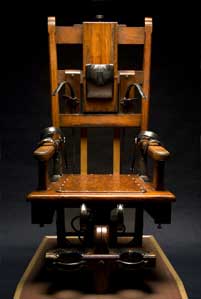 Matthew Barrett and Thomas Nettles, authors of the book, “Whomever He Wills: A Surprising Display of Sovereign Mercy” respond to a question about four point Calvinism (those who reject the “L” of Limited Atonement in the acrostic TULIP):
Matthew Barrett and Thomas Nettles, authors of the book, “Whomever He Wills: A Surprising Display of Sovereign Mercy” respond to a question about four point Calvinism (those who reject the “L” of Limited Atonement in the acrostic TULIP):
What about the death of Christ have convictional “four-point Calvinists” perhaps failed to adequately consider?
At least two things: (1) the priestly role of Christ and (2) the Trinitarian unity in redemption planned, accomplished, and applied. First, as Stephen Wellum recently argued in his SBTS faculty address and as David Schrock contends in chapter 4, Christ is the great high priest of the new covenant and therefore acts as a representative, substitute, and intercessor on behalf of God’s people. In doing so he not only pays the penalty for their sin, but purchases everything necessary (including the work of the Spirit) to bring them to salvation. Universal atonement advocates fail to situate Christ’s priestly work in its covenantal context.
Second, to affirm an individual, unconditional, and particular election by the Father and an effectual, unconditional, and particular calling by the Spirit—but then to affirm a universal, provisional, and general atonement by the Son—creates confusion in the mission of the Trinity. Robert Reymond captures what such inconsistency would sound like as Jesus prays in the garden: “I recognize, Father, that your election and your salvific intentions terminate on only a portion of mankind, but because my love is more inclusive and expansive than yours, I’m not satisfied to die only for those you’ve elected. I’m going to die for everyone.” Therefore, as Robert Letham argues, universal atonement “threatens to tear apart the Holy Trinity,” for it means the Father and Spirit have different goals than the Son. But as the Reformed slogan opera trinitatis indivisa sunt reminds us, the works of the Trinity are indivisible. The Father plans redemption, the Son accomplishes redemption, and the Spirit applies redemption, and all three persons of the Trinity are simultaneously and actively involved in each other’s salvific work on behalf of the elect.

 The analogy between the cross and an electric chair is intended to show that, while the cross has become a common and even sentimental symbol of Christianity today, in Christ’s day it was a harsh symbol of execution. Like an electric chair is today.
The analogy between the cross and an electric chair is intended to show that, while the cross has become a common and even sentimental symbol of Christianity today, in Christ’s day it was a harsh symbol of execution. Like an electric chair is today. Question: If Christ actually “saved” the elect on the cross, isn’t it true to say that the elect are born already justified and there is no need to exercise faith?
Question: If Christ actually “saved” the elect on the cross, isn’t it true to say that the elect are born already justified and there is no need to exercise faith?